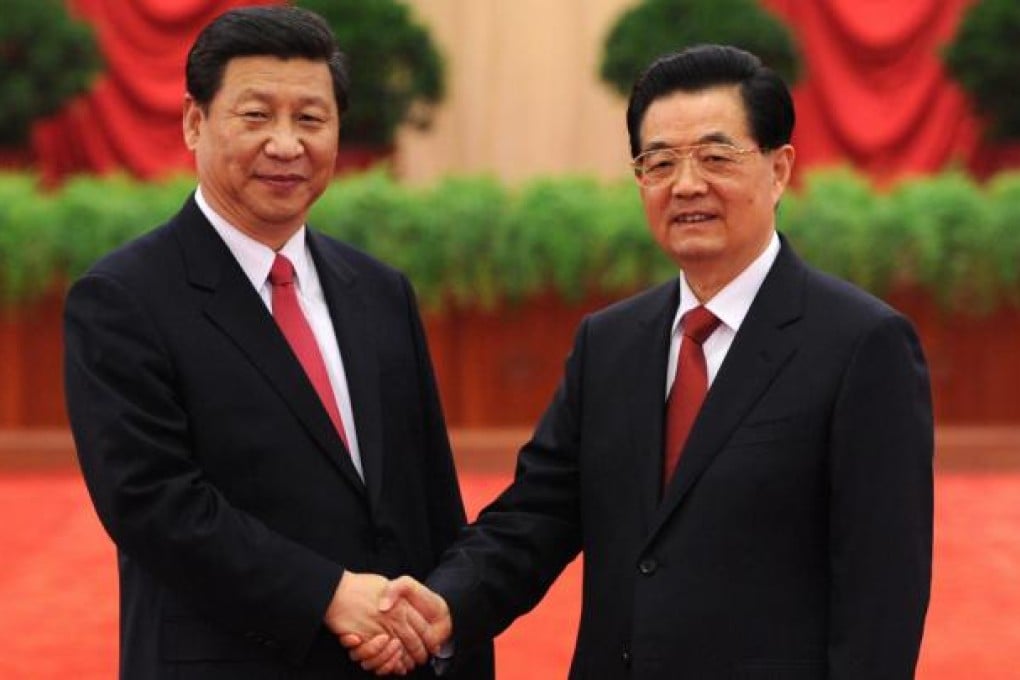With power shift half done, who's in charge of China?
Analyst says it's time gap between handover of party and state positions was narrowed to avoid confusion over who wields real clout

Xi Jinping has been anointed China's most powerful man, as head of the Communist Party and the military, but Hu Jintao is still the country's president until March. So who is calling the shots until then?
Zhou Xiaochuan lost his party post this week and looks set to retire as governor of the People's Bank of China, leaving fellow central bank governors unsure whether to talk to him or wait to find out who his successor is, and investors wondering if policy will change.
The same goes for officials throughout the government. Who, for instance, has the final word for the next four months - outgoing Premier Wen Jiabao or premier-in-waiting Li Keqiang, newly installed as the Communist Party's No 2.
During the previous, even more prolonged, transition a decade ago, which eventually gave Hu supreme power, the same questions were asked, but with less urgency. Then, China was the world's seventh-biggest economy, with gross domestic product of 1.2 trillion yuan. Today output has quadrupled, making it the second-biggest economy, and the largest exporter - and the rest of the world is looking to China to keep the global economy from sliding into recession.
Moreover, China has taken a much bigger role in world affairs commensurate with its rise.
International affairs specialist Professor Pang Zhongying says the drawn-out leadership change could give rise to confusion. "It is inevitable that foreign governments will ask who are the next point men on trade and diplomacy," he said.